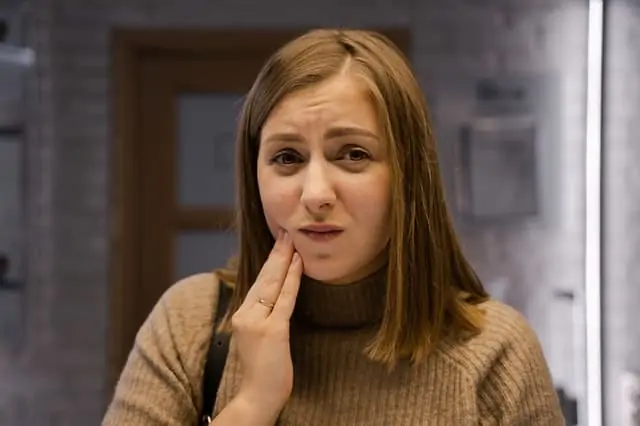Why Do My Teeth Hurt?

Pain in your teeth is such a unique yet unpleasant feeling. The zings and throbbing that come along with a toothache are enough to make you miserable. We get it, and even though we don’t wish toothaches on anyone, the truth is, they happen. But sometimes the hardest part of treating a toothache is finding out what’s causing the pain in the first place. That’s where your dentist in Douglasville comes in.
Common Reasons Why Your Teeth Hurt
A toothache is often different from other pains we experience throughout our bodies. Most of the time, we can’t see that anything is wrong with our teeth, but we sure can feel it. While it’s important to have your dentist properly diagnose the source of a toothache, here are some of the most common reasons behind tooth pain.
- Cavity
A cavity is essentially a hole in the tooth. If left untreated over time, the cavity will become larger. If the cavity gets so big that it gets too close to the nerves, you will feel it. Cavities can usually be fixed through fillings, but cavities that are too big and too deep may require a root canal.
- Abscess
Caused by a bacterial infection, an abscess is a pocket of pus that can pop up on different areas of our mouths. The pain is usually a throbbing type and it can move into the ears and jaw. Sometimes, an abscess also causes facial swelling or a bad taste in your mouth.
- Broken Tooth
Believe it or not, you can break or chip a tooth and not know it, that is until you feel it. A broken or chipped tooth can expose the nerves and cause pain.
- Clenching or Grinding
Habitually clenching your teeth when you’re stressed out or grinding your teeth at night can cause tooth pain. These habits can also lead to broken teeth as well as jaw pain.
- Gum Disease
It can be difficult to tell the difference between gum pain and tooth pain, and sometimes what we think is a toothache is actually a sign of gum disease. If not treated, gum disease can progress into more serious forms and increase pain, cause tooth loss, and even lead to other problems throughout the body.
The best way to find out why your teeth hurt is to schedule an appointment with your dentist in Douglasville. We’ll perform an in-depth examination and take any x-rays we may need to find out once and for all what’s causing your tooth pain. After we know the culprit, we’ll know exactly how to fix it.
What To Do For a Toothache
While you’re waiting for your dental appointment, there are several at-home toothache remedies you can try such as:
- Rinsing With Salt Water – Mix warm water with salt, take swig, swish, spit, and repeat. This can dry out any fluid that may be putting pressure on your nerves and ease the pain. You can repeat this several times throughout the day.
- Applying Ice – There’s a reason doctors recommend using ice to treat any injury — it works! Ice reduces inflammation and, in turn, can relieve any pressure on the nerves. Apply an ice pack wrapped in a towel directly to the outside of your cheek next to the painful area.
- Taking Anti-inflammatories – Another way to reduce inflammation is to take over-the-counter anti-inflammatory medicine. Take these as directed and if your health history allows, and never apply an anti-inflammatory medication directly on your gums or teeth.
- Using Anesthetic – The next best thing to getting your toothache treated is to temporarily numb the area through the use of an anesthetic. Pharmacies and grocery stores carry over-the-counter oral anesthetics for this exact purpose.
Depending on what’s causing your tooth pain, some of these tips may work better than others. Try a few and find what gives you the most relief. But remember, these remedies are temporary. It’s still important to get a proper diagnosis and treatment from your dentist in Douglasville.
How to Prevent Tooth Staining

Many everyday things can cause tooth staining, from your daily cup of coffee to your nightly glass of red wine. But don’t worry, your dentist in Douglasville has some good news. You don’t necessarily need to stop enjoying all the things that can stain your teeth. In fact, there are several things you can do to help prevent or reduce tooth staining from happening in the first place.
Brush After Eating
There are tons of foods and drinks that can cause tooth discoloration, including wine, pasta sauce, coffee, and soft drinks. In fact, the longer a staining agent is left around, the more serious the stain can be, and the harder it can be to remove. But if you’re diligent about brushing your teeth after every meal, you can reduce tooth staining.
When in Doubt, Rinse Your Mouth
Let’s face it, there are going to be times when you don’t have a toothbrush readily available or when you simply won’t be able to brush your teeth after a meal. When this happens, the next best thing to do is rinse your mouth out with water. Water can help neutralize acids that can lead to decay and, in turn, discoloration, and it can also wash away any staining agents from your dinner.
Use the Right Tools
If you know you consume a lot of things that can stain your teeth, you may benefit from using a whitening toothpaste as well as an electric toothbrush. Whitening toothpaste can effectively remove surface stains but you should make sure to use one that has the ADA Seal of Acceptance. These kinds of toothpaste have been evaluated, for both safety and efficacy. Additionally, using an electric toothbrush may help you brush your teeth more efficiently and remove stains, bacteria, and plaque. Talk with your dentist in Douglasville to find the best toothpaste and toothbrush for your teeth.
Stick to a Straw
When you’re drinking tooth-staining liquids you can actually reduce the amount of staining by simply choosing to drink with a straw. Sipping through a straw reduces the amount of liquid that comes in contact with your teeth, as well as the amount of time the liquid has on your teeth, therefore reducing the likelihood of staining.
While these tips can help reduce tooth staining, the fact of the matter is nothing will ever completely eliminate it. Over time, our teeth will become dull even if we follow the above suggestions perfectly. But there’s good news. Your dentist in Douglasville has cosmetic dentistry treatments available to help whiten teeth or cover up stains.
If you’re looking for ways to get a whiter smile, we welcome you to contact us today.



